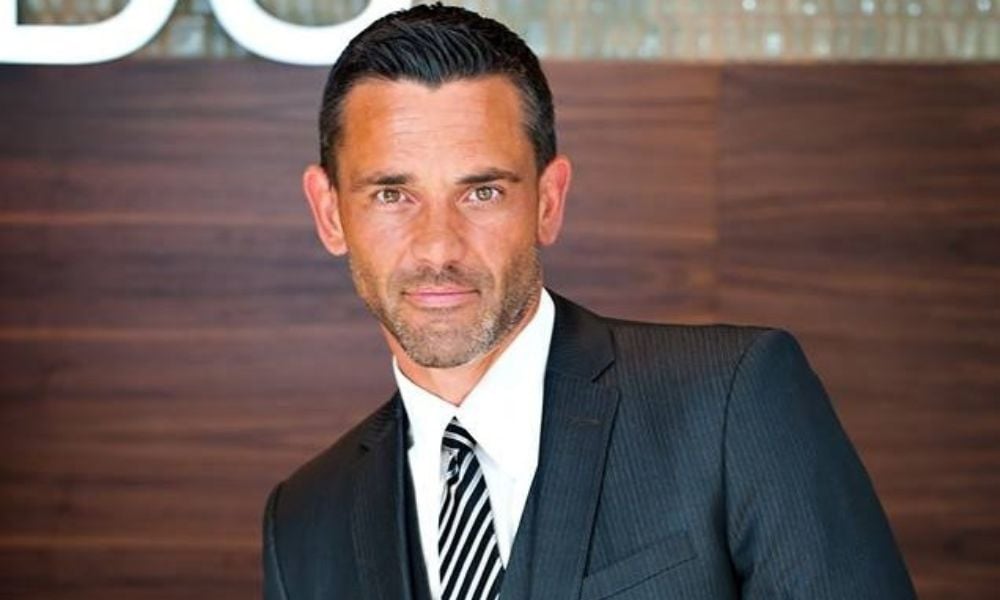
Reaction to Jason Ward's story prompts him to work to remove stigma in the legal profession

Jason Ward, who was, until he “retired” from the profession in January 2022, a successful lawyer in Lindsay, Ontario, didn’t realize the depth of mental health issues in the legal world. That was until he told his story of battling alcoholism and THC pill addiction.
But hearing from others struggling with many of the same stresses has prompted Ward to launch his website, Mentally Speaking, to support his efforts to increase awareness and promote the destigmatization of mental health issues in the legal profession.
Since he started telling his story, which included a Law Times article in January, Ward says he has received “a lot of feedback from lawyers” about their issues, as well as being contacted by different organizations to collaborate on projects to increase awareness of mental health concerns in the legal space. Later articles with local media and national mainstream magazines expanded the reach of his story.
Most legal professionals who have contacted him say, “Wow, your story resonated with me – I’ve been through something very similar.” He also gets approached by lawyers in the midst of a crisis telling him they are at the end of their rope. Ward explains that while he is no mental health expert and can’t give advice, he can point them to resources he used when he was in the same position.
The feedback encouraged him to set up his website, which includes a blog and resources for finding help. It’s been receiving thousands of hits since it launched, “which is great for a new website – so it’s been really positive.”
Ward’s journey has put a face to studies, such as one done by the University of Sherbrooke study for the Canadian Bar Association and the Federation of Law Societies of Canada, on legal professionals who struggle with mental health issues.
That study, and a follow-up report, showed significantly higher levels of mental distress and anxiety among those in the legal profession compared to the Canadian working profession. It also shows the growing use of alcohol and drugs among legal professionals.
For example, the study shows that the proportion of men with risky drinking behaviour increases from 27 to 34 percent between five and ten years of practice. For women, that kind of risky drinking behaviour rises from 18 to 24 percent in the first five years.
Called to the bar in 2000, Ward worked at a Bay Steet firm as a commercial litigator until 2003. He and his wife, also a lawyer, then decided to build a practice in Lindsay, a town with a population of about 20,000 in the Kawartha Lakes Region in southeastern Ontario.
Ward’s P.C., which he still owns with his wife, though he no longer practices law, became a thriving business. But Ward, who eventually became a certified civil litigation specialist, realized that he was developing mental health issues.
The rigidity involved in maintaining a successful practice led Ward, who had been a teetotaller, down a path of alcohol and drug addiction.
Eventually, Ward realized he had to get sober around when the COVID-19 pandemic was declared in March 2020. He ultimately found a sobriety coach and a psychiatrist to meet to help him. Ward stopped drinking. But then came the reliance on THC, a substance he could pick up easily at his local cannabis store.
Ward says while his dependence on THC grew during the pandemic, he continued to work at the office. Eventually, he realized he “wasn’t coping well at all” and had to do something or lose everything he valued.
With the support of his wife, Ward checked himself into a rehab facility in Montreal for a 30-day visit. That was last spring. Since then, Ward says he has been clean and sober.
And he also realizes that he is in a unique position to be able to comment on mental health issues with lawyers precisely because he is no longer a practising lawyer.
“If I had continued to practice, I’d still feel the stigma attached with speaking out about this,” he says. “And now that I’m out, and I’m out entirely, I don’t care about any of that.
And I’m willing to talk about it - whatever, whenever - because I’m not afraid of repercussions to my career, profession, or firm.
Ward also thinks there is a lot of change in the profession regarding mental health issues. “There’s a new generation of lawyers saying we don’t accept the traditional business model of how to be a lawyer,” he says – the long hours, the focus on billable hours.”
He adds: “There have to be adjustments towards project-based billing, more remote work, and it can’t all focus on how much revenue you are generating for the firm.”
Ward hopes that this change in thinking among lawyers will lead to changes in how firms operate. He is already seeing it, to some extent, with more discussion of mental health and lawyers. He’s scheduled to speak at three different conferences of lawyers, and there are likely more to come.
He also says that, right now, his financially stable enough to advocate for mental health resources for lawyers without needing to be paid for it, other than having some travel expenses covered.
“I know several people who have converted to offering counselling or addiction support, but I don’t think that is where I am headed,” he says. “I think I am more focused on the fact that an important message needs to be sent to the profession. And that is where my head is at.”